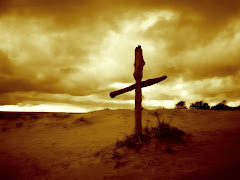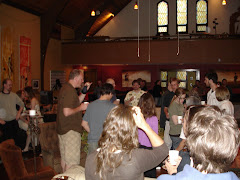I’ve been reading Frank Viola’s book Reimagining Church, and it has been extremely refreshing, challenging, and affirming. Like so many other thoughtful ecclesiologists, Viola sees the traditional church as way off the track and in trouble. But unlike many of his peers, he sees the heart of the Church’s problem as being structural. Building on some of his points from Pagan Christianity – another extremely worthwhile read - Viola sees the traditional, institutional church as operating out of an American corporate structure, “along the lines of General Motors and Microsoft.” He calls for a more organic, egalitarian community, that is spontaneous, free-flowing, and lay led, just as the 1st century church is described in the New Testament.
I am quite captivated by Viola’s vision and am interested in connecting with anyone out in the blog-o-sphere who has first hand experience in a house church or organic church, particularly if Viola or Milt Rodgriguez were involved in planting it. For people like me, whose church experience is almost entirely traditional, the real life stories of those who have deepened their connection to Christ through alternative communities are extremely important and vital.
I have so many questions about all this and a genuine hunger to connect with those who are experiencing some of what Viola discusses in Reimagining Christianity. Here are a few of my most burning questions:
-Any church planter would operate out of certain principles and convictions about how the emerging community should and should not function. How are these principles and convictions articulated and promoted on the one hand, yet not dogmatized or controlling on the other?
- How does such an emerging community avoid being just another self serving small group? Or, put more positively, how can such a community emerge as missional and other-focused from the get go?
- How do such communities avoid the doctrine trap (or should I say doctrine crap?) that pulls members into divisive arguments over what we believe?
- How long do planters of such communities usually stick around before determining that the community is ready to function and flourish on its own? Is the transition generally a tough one?
As I continue to wrestle with what the Church might look like in the future, I look forward to your responses!
Sunday
Subscribe to:
Post Comments (Atom)
Eloise Anna Jones

A Reader at 8 months!
papa and Weezie

it doesn't get any better than this!


















No comments:
Post a Comment